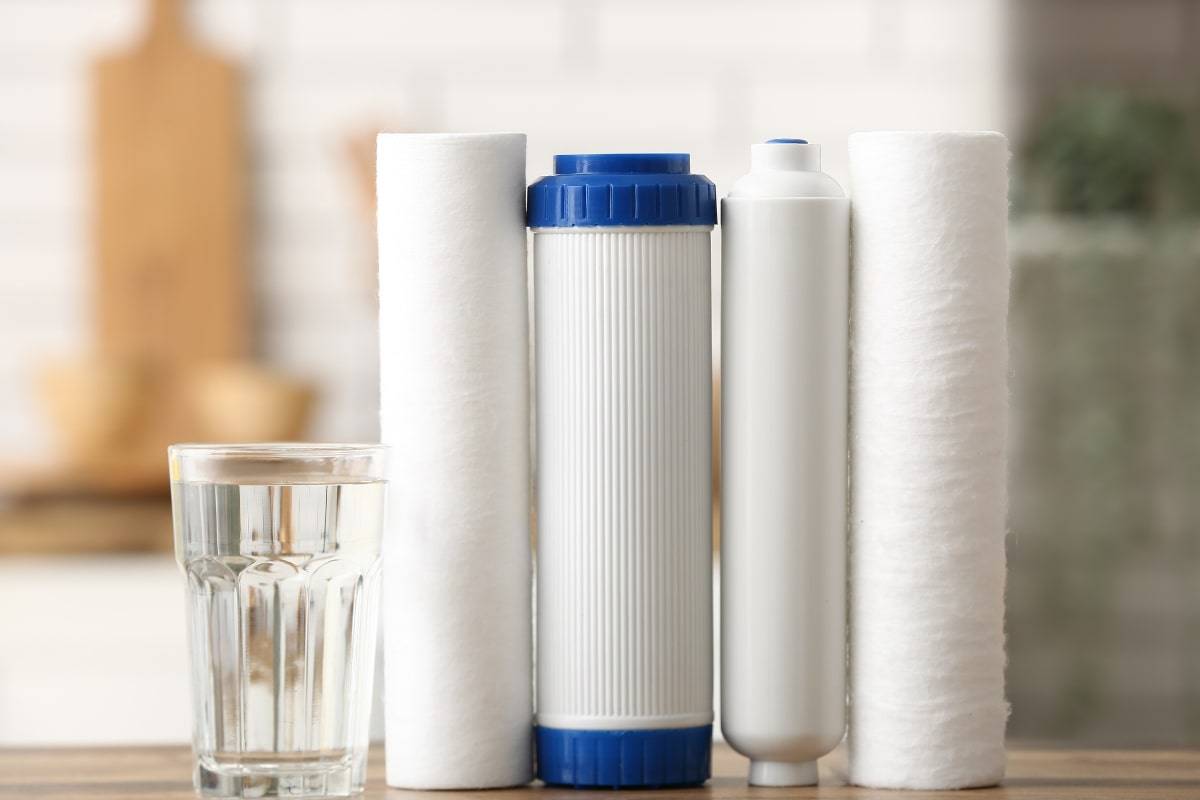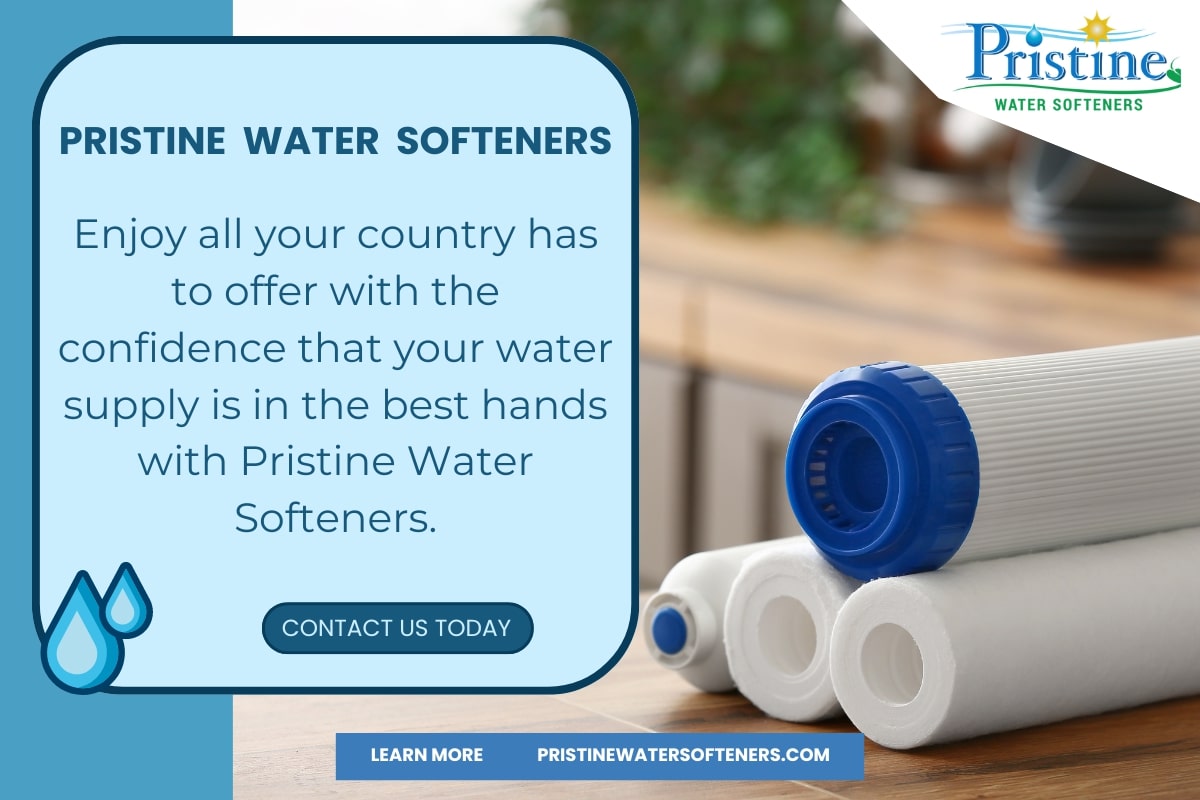Are you bored with dealing with the nuisances of hard water? From dull hair and dry skin to limescale buildup on your appliances, hard water can be a real pain. But what if there was a way to quickly transform your hard water into soft water? In this blog post, we’ll explore the question: Can a filter turn hard water into soft water? Find out here!
Introduction
Hard water can be a crucial problem for many households. It’s not just about the annoying spots on dishes or the buildup in your plumbing—hard water can also affect your skin, hair, and overall health. This post explores the possibility of using hard water to soft water filters to alleviate these issues. We’ll look at how those filters work, evaluate them using different water-softening methods, and help decide if this solution is right for you.
What Is Hard Water?
Before we get into the nitty-gritty of filters, we must understand what hard water is. Hard water contains high levels of minerals, specifically calcium and magnesium. These minerals are not harmful to your health, but they can cause various problems in the pipes and plumbing of your home.
Common Problems Caused By Hard Water
- Limescale Buildup: This can clog pipes, reduce water flow, and damage appliances.
- Dry Skin and Hair: Hard water strips away natural oils, leaving skin and hair dry.
- Soap Scum: Hard water reacts with soap to form a scummy residue that’s hard to clean.
- Stained Laundry: Clothes can become discolored and stiff.
How Do Hard Water To Soft Water Filters Work?
Filters for hard water to soft water work by removing the excess minerals and chemicals that cause water hardness. Different types of filters and methods are used, each with its pros and cons.
Types Of Hard Water To Soft Water Filters
- Ion Exchange Filters: These are the most common type. They work by exchanging the calcium and magnesium ions within the water with sodium or potassium ions. This process effectively softens the water.
- Reverse Osmosis Systems: These systems use a semi-permeable membrane to remove minerals and other impurities from the water. While effective, they can be more pricey and require extra protection.
- Magnetic Water Softeners: These devices claim to use magnetic fields to alter the properties of the minerals in the water, preventing them from causing hardness. However, their effectiveness is debated.
- Salt-Free Water Softeners: These use a process called template-assisted crystallization (TAC) to convert hardness minerals into a form that won’t stick to surfaces. They don’t remove the minerals but render them harmless.
How Effective Are These Filters?
The effectiveness of a filter for hard water to soft water largely depends on the type of filtered water and the quality of the filter. Ion exchange filters are generally considered the most effective, but they require regular maintenance and salt replenishment. Reverse osmosis systems are extraordinarily effective but can be costly and waste a lot of water. Magnetic and salt-free systems are convenient, but may not be as reliable in all situations.
Advantages And Disadvantages Of Different Filters
- Ion Exchange Filters:
- Advantages: Highly effective at softening water; widely available.
- Disadvantages: Requires regular salt refills; may increase sodium levels in water.
- Reverse Osmosis Systems:
- Advantages: Removes a wide range of impurities; produces high-quality drinking water.
- Disadvantages: Expensive; can waste a significant amount of water.
- Magnetic Water Softeners:
- Advantages: Easy to install; no ongoing maintenance.
- Disadvantages: Effectiveness is debated; may not work well in all conditions.
- Salt-Free Water Softeners:
- Advantages: No need for salt; environmentally friendly.
- Disadvantages: Does not remove hardness minerals; effectiveness can vary.
The Benefits Of Using Hard Water To Soft Water Filters
Using hard water to soft water filter solutions can bring numerous benefits to your home and health.
Improved Appliance Lifespan
Soft water reduces limescale buildup in appliances, including dishwashers, washing machines, and water warmers. This can amplify the lifespan of these devices and enhance their efficiency, ultimately saving you money.
Better Skin And Hair
Soft water is gentler on your skin and hair. It helps retain moisture, reducing dryness and irritation. This may be especially beneficial for individuals with touchy skin or eczema.
Easier Cleaning
With soft water, you’ll notice fewer soap scum and mineral deposits on your shower and bathroom fixtures and cleaner, brighter laundry. Cleaning your shower becomes more manageable, and you’ll use less soap and detergent.
Healthier Drinking Water
While hard water is safe to drink, it can sometimes have an ugly taste because of the excessive salt and mineral content. Filters, particularly those blended with opposite osmosis systems, can improve the flavor and quality of your ingesting water.
New Insights And Innovations
Beyond the basic types of filters, several innovative solutions and advancements in water-softening technology are worth mentioning.
Smart Water Softeners
New smart water softeners can monitor water usage and hardness levels in real-time, automatically adjusting their settings to optimize performance. These devices often come with smartphone apps that provide insights and alerts, making maintenance easier.
Eco-Friendly Options
With the development of environmental issues, many manufacturers are growing eco-friendly water softeners that use less salt and chemical compounds and bring less waste. These systems and chemicals aim to minimize the environmental impact while providing effective water softening.
Combining Filtration With Softening
Some advanced systems combine filtration and softening, removing not only sediment hardness minerals and sediment but also other contaminants like chlorine, lead, other metals, and bacteria. This dual function ensures that your water is soft and safe to drink.
How To Choose The Right Filter For Your Home
Choosing the right filter for hard water to soft water depends on several factors, including your budget, water hardness level, and specific household needs.
Assess Your Water Hardness
Start by testing your water hardness. You can buy a water hardness test kit or have your water tested by an expert. Knowing the exact hardness level of filtered water will help you choose the most suitable filter.
Consider Your Budget
Water softening systems cost from several hundred to several thousand greenbacks. Consider how you decide the rate and how much you are willing to spend upfront and on ongoing protection.
Evaluate Maintenance Requirements
Different systems have different maintenance needs. Ion exchange systems require regular salt refills, while reverse osmosis systems need periodic membrane replacements. Make sure you’re comfortable with the preservation requirements before making a decision.
Check for Certification
Look for filters certified by reputable organizations like NSF International. Certification ensures that the product meets particular standards for performance and protection.
Installation and Maintenance Tips
Proper installation and maintenance are crucial for the effectiveness and longevity of your hard water to soft water filter.
Installation
- Follow the Manufacturer’s Instructions: Always follow the manufacturer’s installation guidelines to ensure proper setup.
- Consider Professional Installation: If you’re uncomfortable with DIY installation, consider hiring a professional to ensure everything is installed correctly.
- Choose the Right Location: Install the filter in a location that’s easy to access for maintenance and close to your water supply.
Maintenance
- Regularly Replace Filters: Follow the manufacturer’s recommendations for replacing filters and other components.
- Clean the System: Periodically clean the system to remove any buildup or debris.
- Monitor Performance: Monitor the system’s performance and promptly address any issues to prevent damage.
Innovations And Future Trends
Advanced Sensor Technology
Modern hard water to soft water filters are increasingly incorporating advanced sensor technology. These sensors can detect adjustments in water hardness in real-time and modify the filtration system accordingly. This not only ensures consistent water but also optimizes the filter’s overall performance and sturdiness.
Eco-Friendly Materials
Manufacturers are focusing on eco-friendly materials and techniques. Filters made from biodegradable or recyclable substances are becoming extraordinary, reducing the environmental footprint of water-softening solutions. Some salt-based water softener systems are designed to use minimal water and energy, aligning with sustainable living practices.
Integration With Home Automation
As smart homes become more prevalent, water-softening systems integrate with home automation platforms. This allows homeowners to remotely control and monitor their hard water to soft water filters via their smartphones or smart home hubs. Such integration provides convenience and enhances the user experience.
Common Misconceptions And Myths
Myth 1: All Filters Work The Same Way
Not all filters for hard water to soft water are created equal. Different filters use various methods to soften water, and their effectiveness can vary. Understanding the specific technology and selecting one that meets your requirements is essential.
Myth 2: Softened Water Is Unhealthy
Some people believe that softened water, particularly from ion exchange systems, is unhealthy due to its increased calcium and sodium content. However, the amount of sodium delivered is minimal and is commonly no longer a healthy situation. Salt, calcium, and potassium-based systems are available for those on low-sodium diets.
Myth 3: Water Softening Is Expensive
While some water softening systems can be pricey upfront, they frequently save money in the long run by extending the existence of appliances, lowering electricity bills, and reducing the need for cleansing merchandise and maintenance.
Troubleshooting Common Issues
Issue 1: Reduced Water Pressure
If you notice a drop in water pressure after installing hard water to soft water filter, it could be due to clogging in the filter. Regular maintenance and timely filter replacements can prevent this issue.
Issue 2: Taste And Odor Problems
Sometimes, softened water may have a different taste or odor. This can happen if the filter needs cleaning or replacing. Ensuring proper maintenance and using a high-quality filter can mitigate these problems.
Issue 3: Ineffective Softening
If your water still feels stiff after installing a filter, it might be due to fallacious installation or an undersized filtering system. Check the manufacturer’s guidelines and consider consulting a professional for installation.
Take the Next Step Towards Pure Water!
For those seeking the best water softener and quality solutions, Pristine Water Softeners offers top-of-the-line filters for hard water to soft water, tailored to your needs. Our advanced technology and eco-friendly water softener solutions ensure that you and your family enjoy the purest, softest water possible. Our team of experts is dedicated to providing exceptional customer service and support, ensuring that your water softening system operates flawlessly.
Experience the benefits of soft water today with Pristine Water Softeners, your trusted provider. Embrace the beauty and comfort of pristine water quality, which enhances your life and home environment. Contact us today to learn more about our products and services and take the first step towards a cleaner, healthier home. Enjoy all your country has to offer with the confidence that your water supply is in the best hands with Pristine Water Softeners.



